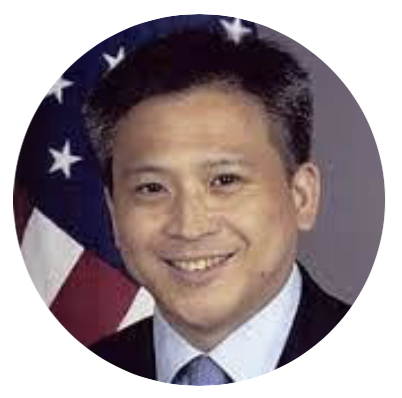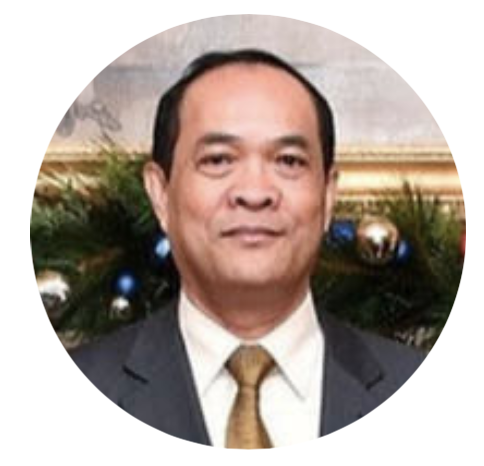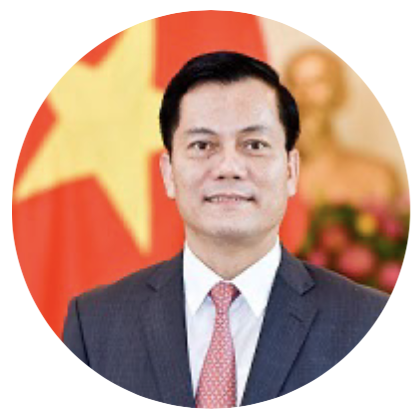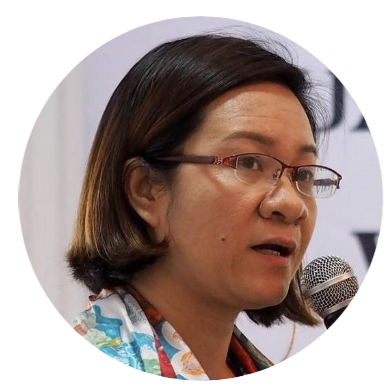Opening Remarks

Senior Bureau Official Kin W. Moy, Bureau of East Asian and Pacific Affairs. U.S. Department of State
Immediately prior to this appointment, Mr. Moy was the Acting Assistant Secretary of State in the Bureau of Intelligence and Research. He has been a Foreign Service Officer for 29 years. His most recent diplomatic assignment was Chief of Mission of the American Institute in Taiwan. Prior to that he served as Deputy Assistant Secretary of State in the Bureau of East Asian and Pacific Affairs, with responsibility for China, Mongolia, and Taiwan.

H.E. Chum Sounry, Ambassador of the Kingdom of Cambodia to the United States
He has served in numerous positions concerning foreign affairs since 1980. Since June 2018 he has served as the Ambassador Extraordinary and Plenipotentiary of the Kingdom of Cambodia to the United States of America and Ambassador designate of the Kingdom of Cambodia to Mexico. From May 2015 to June 2018, he served as the Undersecretary of State in Cambodia’s Ministry of Foreign Affairs and International Cooperation.

H.E. Ha Kim Ngoc, Ambassador of Vietnam to the United States
Ambassador Ha Kim Ngoc was born in 1963. He has served in the diplomatic service since 1988 in different positions and has much experience in bilateral and multilateral diplomacy.
He was appointed by President Tran Dai Quang as the sixth Ambassador Extraordinary and Plenipotentiary of the Socialist Republic of Viet Nam to the United States of America in March 2018. He arrived in Washington, D.C. on July 15, 2018 and presented his Credentials to President Donald J. Trump on September 17, 2018.
Discussants

Brian Eyler, Director Southeast Asia Program and the Energy, Water, and Sustainability Program, Stimson Center
He is an expert on transboundary issues in the Mekong region and specializes in China’s economic cooperation with Southeast Asia. He spent more than 15 years living and working in China and over the last two decades has conducted extensive research with stakeholders in the Mekong region. He is widely recognized as a leading voice on environmental, energy, and water security issues in the Mekong.

Nguy Thi Khanh, Executive Director of Green ID Vietnam
Nguy Thi Khanh has been working for the socially just development of Vietnam and Southeast Asia for almost 20 years, and received the 2018 Goldman Environmental Prize for her work to push Vietnam’s energy transition. Ms. Khanh started working with indigenous communities in the mountains area of Vietnam, focusing mainly on local development and women’s empowerment before diving into energy development and advocating for a more participatory approach around hydropower development in the Mekong region.
Mr. Bounthanongsack Chanthalath, Deputy Head of Mission of the Embassy of Laos in Washington DC
More details to come.
James Compton, Project Lead on USAID Wildlife TRAPS, TRAFFIC (TBC)
James Compton has been working on trade in wild animals and plants in Asia for over 20 years at a variety of levels, including leading TRAFFIC’s work in the region until 2020. He now helms the USAID Wildlife TRAPS Project, linking TRAFFIC’s wildlife trade expertise with institutions and individuals specialized in animal, wildlife and public health. The project, jointly implemented between TRAFFIC and IUCN, focuses on reducing zoonotic spillover risk from wildlife trade, using a supply chain analysis approach to identify critical actors and human/animal interfaces. Wildlife TRAPS seeks to leverage existing systems and forge partnerships to combat illegal and ill-managed wildlife trade, in tandem with shifting human behaviors away from high-risk practices towards safe, sustainable and legal alternatives that contribute to the security of health, food, environment and sustainable development.
